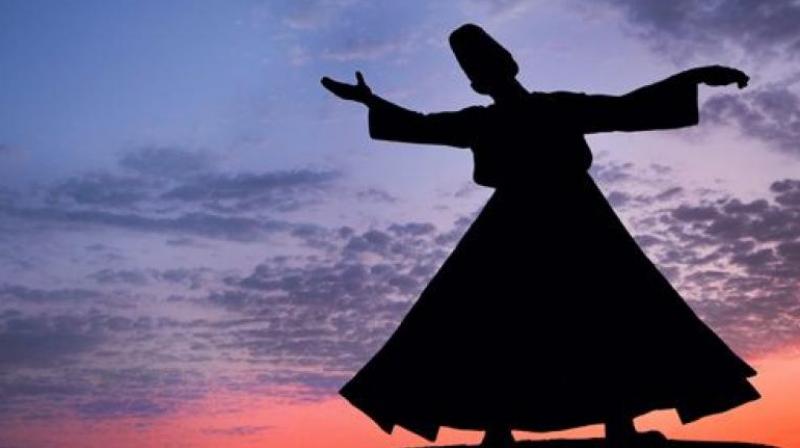Mystic Mantra: Hasrat's syncretic spirituality

One of the Indian mystics who celebrated divine love and syncretic devotion was Maulana Hasrat Mohani. In his own words, he was a Sufi mo’min (Sufi believer), ishtiraaki Muslim (secular Muslim), Aashiq-e-Rasool (lover of the holy Prophet) and at the same time, a Krishna bhakt (devotee of Krishna). The ultimate path he enlightened for his country’s freedom and his soul’s liberation was his conception of inqilab (revolution) and darweshi (asceticism). He says in his Urdu poetry:
“Darweshi-o-inqilab maslak hai mera
Sufi momin hoon, ishtiraaki muslim”
Through his mystic poetry, Hasrat dedicated beautiful tributes of love and devotion. He composed several munajat (spiritual supplications) and na’at (poetry in praise of Prophet Muhammad), for instance:
Khyaal e yaar ko dil se mita do Yaa Rasool Allah
Khird ko apna diwaana bana do Yaa Rasool Allah
Purge my heart of all worldly thoughts, O Allah’s Apostle
Turn my mind a devotee of yours, O Allah’s Apostle
But he did not forget about the earlier prophets who were sent down to different territories, particularly India. An incarnation of compassion, tenderness and divine love, Krishna is greatly revered as “Hazrat Krishna” in the poetry of Maulana Hasrat Mohani. Some of his poems on Krishna are in Urdu:
Irfan-e-ishq naam hai mere maqaam ka
Hamil hoon kis ke naghma-e-nai ke payaam ka
Labrez-e-noor hai dil-e-Hasrat, zahe-naseeb
Ik husn-i-mushkfaam ke shauq-i-tamaam ka
(I stand where love’s perfect knowledge is found. Whose is the flute whose melody fills me? What good fortune, Hasrat that your heart brims with a glowing love for that musk-hued beauty!)
An adherent of the Qadri Sufi order, Hasrat was inspired by the greatest Sufi saint of Baghdad, Shaikh Abdul Qadir Jilani and Syed Abdur Razzaq of Bansa. He supplicates in Awadhi:
“Baghdadi dayalukhiwayya/ humhoon garib han paar jawayya
Birah kimaari, nipat dukhiyaari/ taakan kab-lag door se nayya
Paar utaar piyase milao/ Razzak piya Baanse nagar basayya”
(Merciful boatman of Baghdad! We the poor wish to get across. Separation-wounded, grief-accursed, how long must we gaze at the boat from afar? Beloved Razzaq, residing in Bansa, please take us across; let us meet with the beloved.)
In times of communal harmony eroding in the country, spiritual luminaries like Maulana Hasrat Mohani must be recalled. His pluralistic messages should be rejuvenated in India to create an atmosphere where love is one’s only religion:
“Man to-se preet lagaai Kanhaai
Kahu or kisurati ab kaahe ko aai
Tan man dhan sab waar-ke Hasrat
Mathura nagar chali dhooni ramaai”
(My heart has fallen in love with Kanhaiya. Why would it think of anyone else now? Hasrat, give up for him all that is yours. Then go to Mathura and become a jogi.)
Mindful of the religious fanatics who may frown upon his devotion to Krishna, the devotional Maulana issues an inclusivist “fatwa” in justification of his love:
“Puna hoe na Shyam kipreet ka paap
Kou kaahe karat hai pashchatap
Neha ki aag maatan-man mare
Kab lag jalat rahi chup-chaap
(Loving Shyam is not a sin, nor a virtue. So why do people repent? How long must I burn in love’s fire silently, oppressing my heart and body?)
B09

